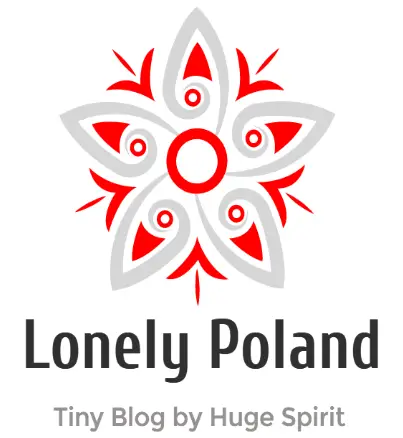Let me tell you something interesting. Polish girls often suggest that their male counterparts are more controlling than foreigners. The opinion seems to be split, though, with some citing a mix of advantages and disadvantages associated with these men. Some women think that the shared culture, language, and life experiences in the same country make Polish man seem superior to foreign peers.
According to the article I read recently in newspaper – If you want to understand why, think about it like this one woman said.
It’s all about the language and the culture that we share. I think these similarities make it easier to connect, especially when discussing social issues or current affairs. Plus, humor is so much simpler when you share the same cultural context.
Now, there are also some qualities that seem positive on the surface, but the ladies are not quite sure how to evaluate. A few of the remarks were,
You could say they’re predictable, which could be a good thing, or bad, depending on how you see it. You can sometimes count on them.
Another woman in this interview observed:
↳ PRO TIP: Do you like traveling? Then before you buy any ticket or book an attraction, check if it's available in this worldwide Viator Database. You may save a lot of money and time. No need to thank me :)
They earn more, which could be seen as an advantage for them but a disadvantage for us unless women leverage it to their advantage. However, it’s also true that they earn less than us, but I don’t think we can be blamed for that!
Polish Men vs Foreigners – A Comparison
Allow me to explain that some of these traits, which could be perceived negatively, are not unique to Polish men. The women clarified that they noticed these characteristics in foreign men as well. It seems the social changes have impacted men negatively globally, not just in Poland.
One woman said:
I am convinced that many of these differences that seem typically Polish are unfortunately also found in men all around the world. They tend to crumble faster in crisis situations, they are often insecure when a woman is more competent and intelligent than them, and they can be incredibly self-absorbed.

So there you have it. As you can see, the views of Polish women on their male counterparts are quite diverse, with opinions ranging from appreciation for their shared cultural experiences to criticism of their perceived controlling nature and insecurities.
- I think you should also read this article: Why the Lack of Smiles in Poland? Is Smiling Odd In This Country?
The Less Appealing Side of Polish Men
I believe it’s important to also understand how some Polish women perceive their male counterparts. They find these men somewhat less appealing, especially when compared to men from Western Europe. This viewpoint is summed up well in a statement from one of the women surveyed.
- I think you will also like: The Allure of Polish Girls – Why Do We Fall In Love in Seconds?
Are Polish Men More Possessive?
I think that many men, not just Poles, might harbor a desire to be controlling. They may not say it out loud, but it’s there. This behavior can be seen more prominently in certain places, like Arab countries, Asian nations, and Russia. But when we look at Western European men, this kind of attitude is not as prevalent. Or perhaps they do want to control, who knows?
Western Europeans tend to treat women more as equals than Polish men. It seems like they have realized that the old patriarchal attitudes don’t really work anymore. Women in their countries won’t tolerate such treatment.
Now, that’s not to say everything is perfect. Sure, there can be problems in relationships with these guys too, with other tricky issues to navigate. But I can tell you one thing for sure – we don’t fight about who washes the dishes. It’s either a shared task, or we get a dishwasher. I think these issues are tied to a country’s mindset and stage of civilizational development.
Can Men Truly Be Equal Partners?
I think it is worth saying that the most frequent complaint among the women surveyed is that Polish men struggle to establish equal, partnership-based relationships. The notion of roles being dictated by gender seems deeply ingrained in them.

When judging their peers, Polish women are often critical of the men’s inability to build egalitarian intimate relationships without adhering to patriarchal gender norms. This, I believe, is the primary reason for their reluctance to pursue intimate relationships with their fellow countrymen.
In the words of one respondent:
Men often have demanding attitudes towards women. They believe women should act in certain ways and sacrifice certain things simply because it is expected of them. This mentality of 'a woman should do this, a woman shouldn’t do that, she’s a bad mother if she does this, she’s wild if she does that’ is so pervasive.
You could write a doctoral thesis on this topic. In relationships with women, they often aim for the minimum effort, maximum effect. In other words, they’d love for a woman to throw herself at them and then make them a sandwich for dinner.
Polish Men Versus Western Europeans
One of the women surveyed had this to say:
No, Polish men are not on par with men from countries I’m familiar with. It saddens me to say this, as a Pole myself, living here with my Polish friends and family, but our men fall short. They can’t compare to Western Europeans. They aren’t equal partners, clinging to outdated patriarchal ideas. They’re a strange blend of inferiority complexes and inflated self-worth. It might sound paradoxical, but I think Poland is a country of paradoxes.
These perspectives confirm the observations made by Tomasz Szlendak, that contemporary women, including Polish women, are finding it tough to locate suitable partners within their own social circles.
The Struggle to Find a Suitable Partner
Allow me to explain. Women, especially the younger ones, are struggling to find suitable partners with whom they can imagine spending their lives. The word 'suitable’ here is crucial. It radically alters the perception of today’s educated, hardworking, and well-paid women who, like their mothers and grandmothers, aspire to find a man who lives up to their sophisticated standards.
- If you are looking for a partner , perhaps you should read this article to: Finding Romance in Poland: Top Used Dating Apps Revealed
The 'New Men’ Study
The 'New Men’ study was conducted among internet users aged 18-45. It provided a better understanding of the issues faced by contemporary Polish men. The study also identified common threads across varying life situations, ages, and places of residence. It revealed that toxic masculinity is a context today’s men have to navigate.

While awareness about the issue is growing, there is still a lot to be done as a society for future generations to understand masculinity differently from their forefathers. It should not be a rigid model of traits and behaviors to rigidly conform to, but rather a broader definition that allows for diversity.
The Three Challenges
The study highlighted three main areas that contemporary Polish men find challenging:
- Navigating relationships
- Coming to terms with their past
- Dealing with societal expectations
These challenges, I believe, present an opportunity for growth and change. As we understand them better, we can work towards creating a soceity where both men and women can thrive in true partnership.
Challenging Harmful Stereotypes in Relationships
Let’s start with one stereotype that is causing unnecessary stress – the notion that men should earn more than their partners. This is a remnant of patriarchal thinking, and it’s harmful to everyone.
Men who make less than their partners often feel inadequate, even if they shouldn’t. On the flip side, instances where men take care of the home and kids remain the exception, not the norm. According to recent ZUS data in Poland, only 1% of parental leave is taken by men.
However, a study by Kantar highlights that in relationships, most people aren’t bothered if their partner earns more than they do. The survey reveals that 69% of women and 61% of men felt this way. A tiny percentage, only 6% of men and 4% of women, said, „I want to be the higher earner in a relationship.”
Polish Men as Partners and Best Friends
Here’s something to note. Despite the issues they might have, Polish women still think highly of the men in their lives. Most women from the study confirmed that they can openly discuss their feelings and uncertainties with their partners, even if those doubts involve the relationship itself. Among women aged 18-34, a striking 74% of respondents expressed this sentiment, and 72% were confident enough to say that their partner is their best friend.
What’s more, over 60% of the women who participated in the survey admitted to being genuinely proud of their partners and impressed by them. In fact, 73% of women and 64% of men said they value time spent alone. From this, it’s safe to conclude that finding time for oneself can have a positive impact on a couple’s relationship.
So, while there may be issues and challenges, there’s a silver lining here. It’s clear that relationships are evolving, and old stereotypes are gradually being challenged. This is definitely a step in the right direction.
References:
- https://www.gazetaprawna.pl/magazyn-na-weekend/artykuly/8601217,samotnosc-mezczyzna-problemy-relacje-damsko-meskie-pozycja-spoleczna.html
- https://wyborcza.pl/7,75398,17179151,byly-maz-dziecko-corka-nowego-partnera-rodzina-patchworkowa.html
- https://ws.uw.edu.pl/wp-content/uploads/2021/12/co-sie-dzieje-z-mezczyznami.pdf



